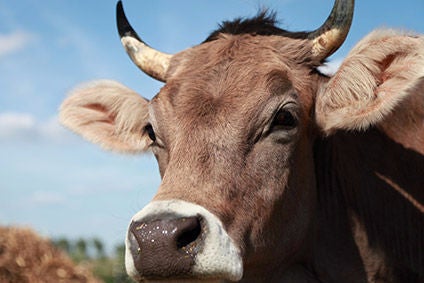
The US government has reached an agreement under which Brazil will open up its market to US beef and beef products for the first time since 2003.
However, US beef producers have criticised a separate decision that opens the US market to Brazilian fresh beef citing fears that the move could allow foot and mouth disease into the country.

Discover B2B Marketing That Performs
Combine business intelligence and editorial excellence to reach engaged professionals across 36 leading media platforms.
The US Department of Agriculture (USDA) said the deal with Brazil’s agriculture, livestock and food supply ministry, “reflects the United States’ negligible risk classification for bovine spongiform encephalopathy (BSE) by the World Organisation for Animal Health (OIE) and aligns Brazil’s regulations to the OIE’s scientific international animal health guidelines”.
US agriculture secretary Tom Vilsack said the Brazilian market of “200-million-plus consumers and growing middle class offers excellent long-term potential for US beef exporters”
Vilsack said: “We are pleased that Brazil, a major agricultural producing and trading country, has aligned with science-based international standards, and we encourage other nations to do the same. Since last year alone, USDA has eliminated BSE-related restrictions in 16 countries, regaining market access for US beef and pumping hundreds-of-millions of dollars into the American economy.”
Both countries will immediately begin updating their administrative procedures in order to allow trade to resume, the USDA said on 1 August. US companies will need to complete Brazil’s regular facilities registration process.

US Tariffs are shifting - will you react or anticipate?
Don’t let policy changes catch you off guard. Stay proactive with real-time data and expert analysis.
By GlobalDataSeparately, the USDA said its Food Safety and Inspection Service (FSIS) also recently determined Brazil’s food safety system governing meat products “remains equivalent to that of the United States and that fresh (chilled or frozen) beef can be safely imported from Brazil”.
“Following a multi-year science-based review consistent with US food safety regulations for countries that export meat, poultry and egg products to the US, FSIS is amending the list of eligible countries and products authorised for export to the US to allow fresh (chilled or frozen) beef from Brazil,” the USDA said.
According to the USDA, “the past seven years have represented the strongest period in history for American agricultural exports, with international sales of US farm and food products totaling US$911.4bn between fiscal years 2009 and 2015”.
However, the National Cattlemen’s Beef Association, US Cattlemen’s Association and R-CALF USA all condemned the move. R-CALF CEO Bill Bullard said: “To say that the Brazilian market affords US cattle producers with economic opportunities would be laughable if not for the significant risk associated with Vilsack’s weakening of our longstanding import restrictions for countries like Brazil that continue to battle foot-and-mouth disease and other dangerous livestock diseases.”
Bullard said: “Brazil lacks the resources and infrastructure to maintain health and safety standards that are at least equal to that of the United States. That is why the USDA lowered the US standard to that of mere equivalency – which essentially means ‘close enough’.”
In June last year, the US market was opened to fresh beef imports from Brazil and Argentina, ending a long period of restriction. The USDA’s Animal and Plant Health Inspection Service said the decision reflected amended regulations that mitigate the risk of spreading foot-and-mouth disease and was “the first step of a process” for the regions to gain access to the US market for beef.





